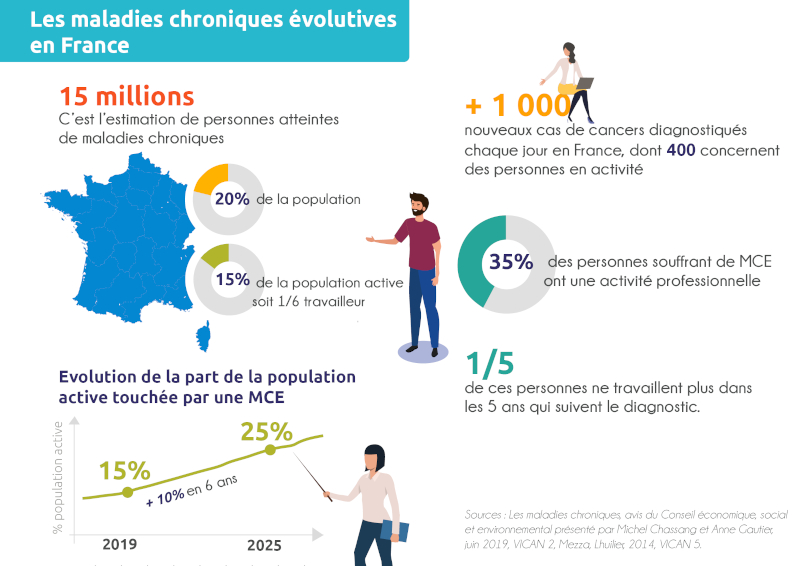A recently adopted law will, under certain conditions, allow people living with a chronic disease or disability to access jobs that were previously forbidden to them: explanations.
Whether they are diabetics, cancer patients, HIV-infected or in long-term care, what is the fate of the 15 million chronically ill people in relation to the labour market and training? The law of 6 December 2021 will make it possible to organise it during the course of this year.
On the genesis of this new legal provision
This is nothing new, but it would seem that the time for action has come after much procrastination. For example, many members of parliament wondered whether diabetics could really enter the labour market. This is probably also the case for certain personalities such as Alizée Agier, the world karate champion who was judged unfit to work as a peacekeeper in 2017 due to her type 1 diabetes. However, this disease is said to be progressive and is much better treated today than it was for a long time. This is also the case for many chronic diseases.
On the purpose of this law: 2 articles
How, then, can an evaluation process be set in motion for all the texts governing access to the labour market for people living with a chronic disease? This is why the legislator has just instituted in Article 1 a committee to evaluate the texts governing access to the labour market for people with such diseases. This committee must obviously promote equal access to the labour market but also to vocational training.

However, access to work must not mask the difficulties associated with certain pathologies. Thus, Article 2 of this law clearly states that the conditions of access to a job or training for people living with a chronic disease must be proportional to the particular risks to the health and safety of the person or third parties in the exercise of the accessible functions: "The medical assessment of these particular health conditions provided for by legislative or regulatory provisions is carried out on an individual basis and takes into account the possibilities of treatment and compensation for the disability. That says it all. Case-by-case conditions will have to be added.
In any case, the scope of the creation of this evaluation committee is purely and simply linked to the necessary adaptation of laws to the improvement of medicine and life with a chronic disease. Is this not what we are experiencing with this famous vaccine that will arrive next March to treat cases of contamination by the Omicron variant of Covid 19?
